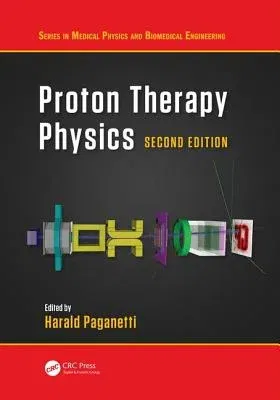Expanding on the highly successful first edition*,* this second edition
of Proton Therapy Physics has been completely restructured and
updated throughout, and includes several new chapters. Suitable for both
newcomers in medical physics and more seasoned specialists in radiation
oncology, this book provides an in-depth overview of the physics of this
radiation therapy modality, eliminating the need to dig through
information scattered across medical physics literature.
After tracing the history of proton therapy, the book explores the
atomic and nuclear physics background necessary for understanding proton
interactions with tissue. The text then covers dosimetry, including beam
delivery, shielding aspects, computer simulations, detector systems and
measuring techniques for reference dosimetry. Important for daily
operations, acceptance testing, commissioning, quality assurance and
monitor unit calibrations are outlined. The book moves on to discussions
of treatment planning for single- and multiple-field uniform doses, dose
calculation concepts and algorithms, and precision and uncertainties for
nonmoving and moving targets. Imaging for treatment guidance as well as
treatment monitoring is outlined. Finally, the biological implications
of using protons from a physics perspective are discussed.
This book is an ideal practical guide for physicians, dosimetrists,
radiation therapists, and physicists who already have some experience in
radiation oncology. It is also an invaluable reference for graduate
students in medical physics programs, physicians in their last year of
medical school or residency, and those considering a career in medical
physics.
Features:
Updated with the latest technologies and methods in the field, covering
all delivery methods of proton therapy, including beam scanning and
passive scattering
Discusses clinical aspects, such as treatment planning and quality
assurance
Offers insight on the past, present, and future of proton therapy from a
physics perspective

